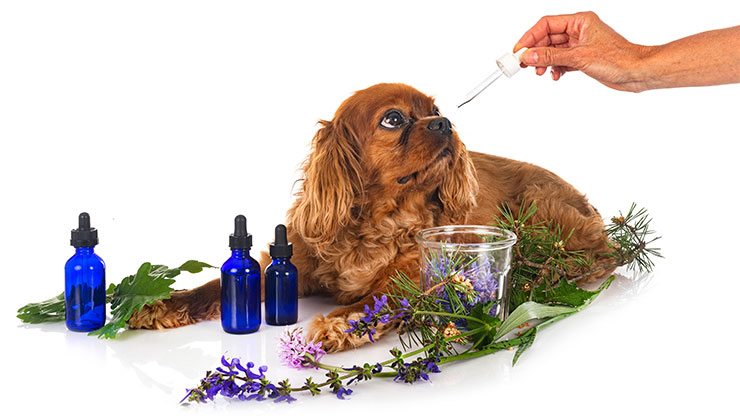
Why Essential Oils Spell Trouble for Your Dog
While essential oils are a staple in many households for their therapeutic benefits, the truth is they may pose serious risks to our beloved canine companions. Let's explore the lesser-known dangers lurking in those aromatic bottles and learn how they can impact your dog's health and well-being!
Essential Oil Toxins
As much as we love pampering our pups, it's essential to recognize that their physiology differs from ours, making them more susceptible to certain substances, including essential oils. According to the ASPCA, essential oils contain volatile oil compounds that are toxic to dogs, particularly when ingested or absorbed through the skin. For example, certain oils like tea tree (melaleuca), cinnamon, pennyroyal, and wintergreen are known to be highly toxic to pets and cause a range of adverse effects, from gastrointestinal upset to neurological issues if used incorrectly.
The way dogs metabolize essential oils differs from humans, leading to potential complications even with seemingly harmless oils. Dr. Tina Wismer, medical director of the ASPCA's Animal Poison Control Center, warns that dogs lack the liver enzymes necessary to metabolize essential oils effectively. As a result, even oils considered safe for humans, such as lavender and peppermint, can cause adverse reactions in dogs when inhaled or ingested in large quantities.

Skin Problems
Skin sensitivities are another concern when it comes to using essential oils on pets. Dogs have more sensitive skin than we do and are prone to developing irritations and allergic reactions to certain oils. For example, applying undiluted essential oils directly to a dog's skin can lead to redness, itching, and inflammation, exacerbating existing skin conditions or causing new ones to develop.
Safety with Oils
Keep in mind that the method of application plays a significant role in determining the potential risks of essential oils for dogs. While diffusing oils into the air may seem harmless, it's crucial to consider the concentration of oils in the air and the duration of exposure, as prolonged inhalation can lead to respiratory issues and irritation in dogs. Does this mean you should get rid of your diffuser? Not necessarily. But it does mean you should be mindful of how you're using your oils.
Essential oils are incredibly concentrated, meaning a lot of plant material is compacted into one drop. As stated by Doterra, it takes a whopping 6,000 pounds of lemon balm plant to produce a single pound of essential oil. We'll let you do the math on that one!
Conclusion
In light of these risks, remember to heed caution when using essential oils around your fur family members. Always consult with a veterinarian before using any essential oils on or around your dog, and never apply oils topically or administer them orally without professional guidance. By taking proactive measures to safeguard your pets, you can ensure they stay healthy, content, and free from the potential risks of volatile oils!










